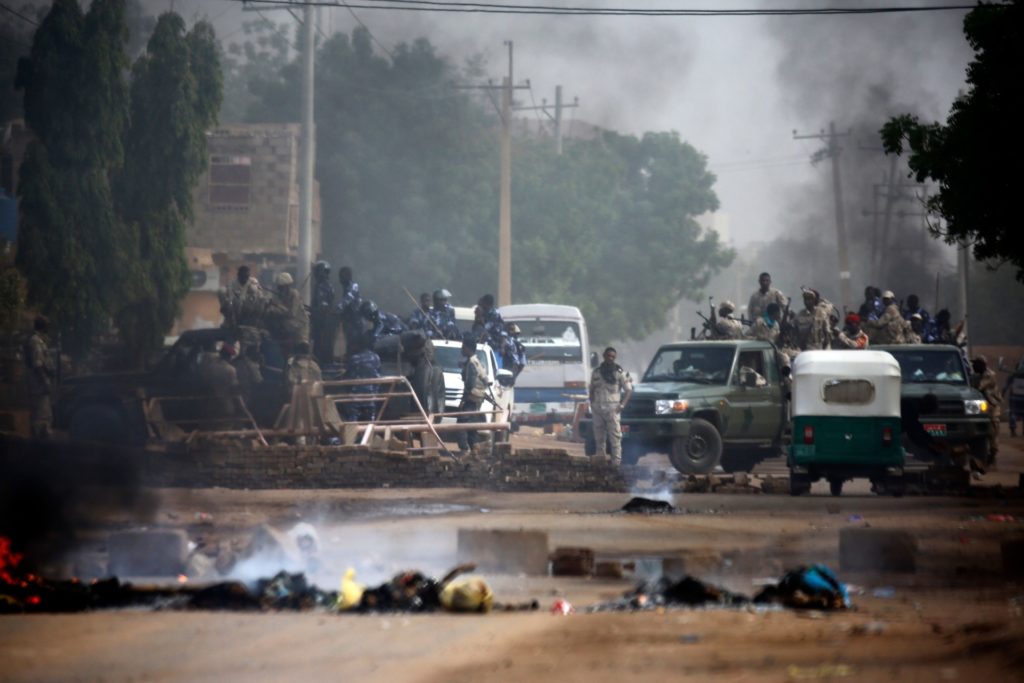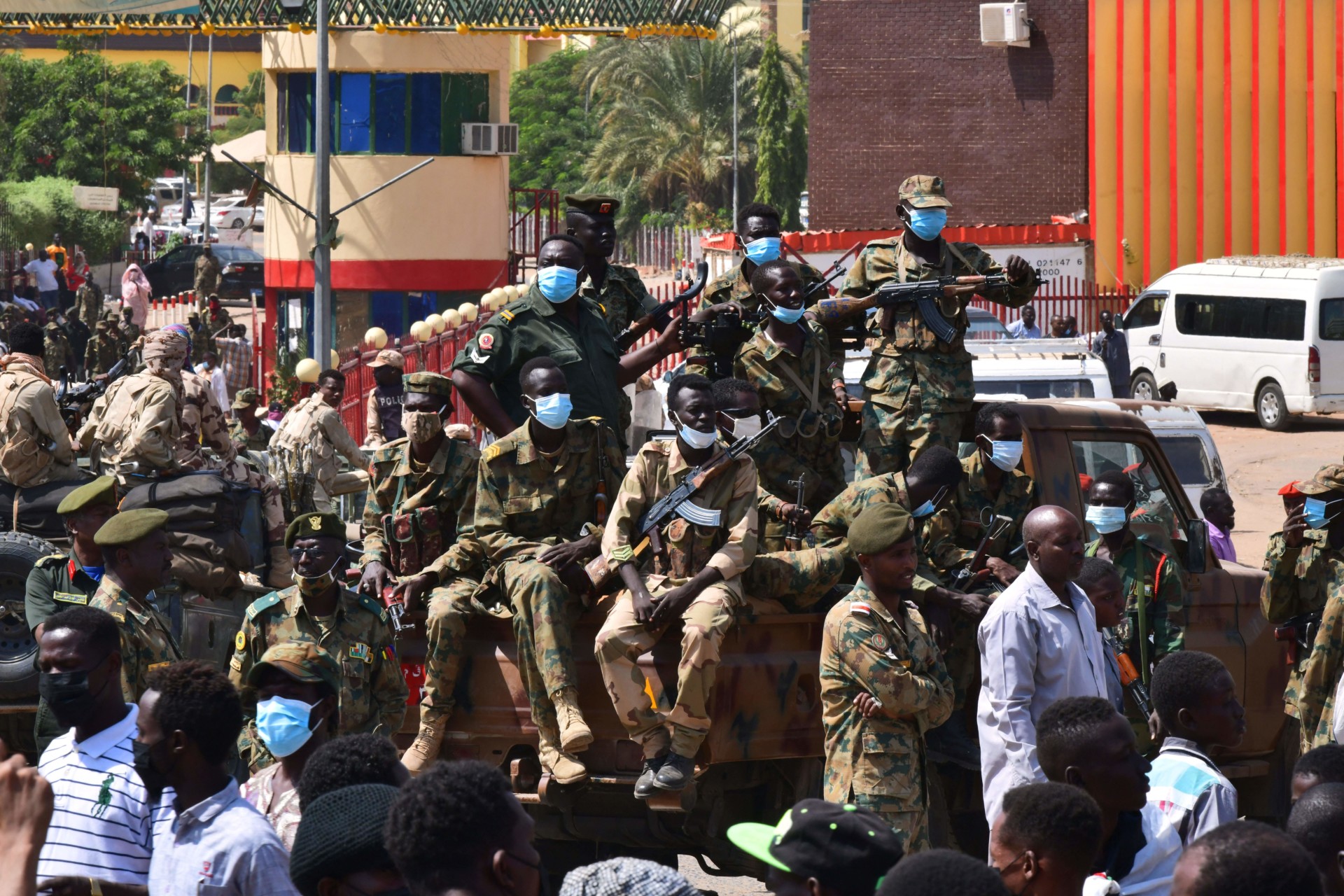Note from the editor:
We wrote this news digest in the days before the ongoing coup in Sudan. The military has now dissolved the transitional council and seized power amid the ongoing instability. This newsletter explains the context leading up to the coup, why the transition to democracy had stalled, and the provenance of the recent protests and economic crisis.
- Hundreds of thousands of people are protesting in Sudan as tumult grips the country over a lagging democratic transition, bread and grain shortages and a flagging economy.
- Protesters on Thursday marched in the streets demanding a complete transition to civilian control from the current ruling council that includes top military and security figures as well as representatives of the protest movement that ousted former President Omar al-Bashir in 2019.
- They came out after a splinter protest group launched a sit-in demanding the generals seize power and fix the ailing economy.
- Last month, a coup attempt blamed on supporters of al-Bashir was foiled, leading to the arrest of 21 officers and sparking a war of words between the generals and their civilian counterparts, who blamed each other for the delays in the transition to democracy.
- Protests in the east that have disrupted port operations have complicated the situation, leading to food shortages and disruption in oil exports.
- Facebook in September removed 116 pages, 666 Facebook accounts, 69 groups and 92 Instagram accounts in Sudan that targeted domestic audiences that were linked to the Rapid Support Forces, the security force led by Muhammad Hamdan Dagalo (Hemeti), who is part of the transitional council. The RSF was implicated in multiple atrocities in Darfur.
- Sudan has been led by a civilian-military transition council since al-Bashir’s ouster. The council of ministers is led by Abdalla Hamdok, a civilian. However, the levers of power are largely in the hands of the members of the military and security establishment. The most prominent members of the transitional council are Abdel Fattah al-Burhan, the commander of the armed forces and chair of the council, and Hemeti. Some describe the council as a reconstituted version of the infamous Janjaweed militias that carried out atrocities in Darfur.
- The protests reflect growing frustration with the pace of the democratic transition and the state of the moribund economy, which, despite moving away from being a pariah under al-Bashir, has yet to yield any significant improvements in the lives of ordinary people.
- While al-Burhan and Hemeti have paid lip service to the transition, they have continued to hoard political and economic power. (A forthcoming New Lines essay will explore in detail their deep involvement in the Sudanese economy.)
- The blockade in the east has exacerbated the economic situation, leading to shortages of fuel, wheat and medicine.
- The eastern part of the country is home to the strategic Port Sudan, through which oil from South Sudan is exported. The region has long complained of neglect and political marginalization.
- The latest multi-week blockade comes on the anniversary of the Juba Agreement, which was signed last year in the South Sudanese capital to conclusively end decades of warring with rebel groups. But members of the eastern tribes say they were not represented in the talks.
- The blockade has worsened the fraught economic situation by adding food, fuel and medicine shortages to the litany of economic woes facing the country.
Previous New Lines coverage on Sudan:

How a Human Rights Report Could Upend Sudan
Nabil Adeeb’s job is to uncover a massacre committed by Sudanese forces in 2019. He fears his results may lead to a coup. Read more here.
This is a new newsletter offering by New Lines Magazine. Every Monday, we will send out a Middle East news digest meant to get you up to speed on the big stories from the region. Sign up below to receive our newsletters.



